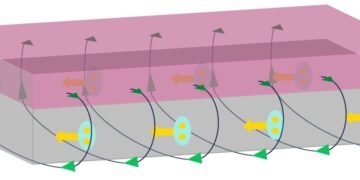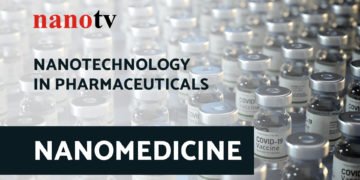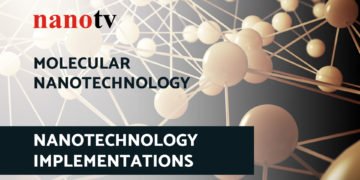VGM Naidu, Wahid Khan, Chella Naveen, Yerra Veera Ganesh
The authors are with National Institute of Pharmaceutical Education & Research (NIPER), Hyderabad
Nanotechnology, today, is regarded as a revolutionary technology that can help address key needs relating to energy, environment, health and agriculture in developing countries. Nanotechnology is the branch of science that deals with the manipulation of nano-sized particles. At nano-scale, the properties of particles differ from individual atoms or bulk items, which lead to development of novel applications.
The discovery of scanning tunnel microscope (STM) and atomic force microscope (AFM) have made possible to view nano-sized particles and are the key reasons behind the short-span development of nanoscience as a pivotal field in the current technological era. The applications and implications of nanotechnology have been attracting more number of people to work in this area.
The scientific community across globe has realised the importance and potential of nano research and by convincing politicians and leaders around the world, many countries have implemented initiatives to promote nanoscience and nanotechnology in their universities and industries. The increase in funding has increased the rate of research and discovery.
Indian scenario
India is in the budding stage of nanotechnology research. In spite of lack of proper funding and facilities, the nanotechnology research has been increased dramatically since last 10 years due to various initiatives by the government organisations such as CSIR, DBT and DST.
In October 2001, the Department of Science & Technology (DST) launched a major “Nano Science and Technology Initiative” under the leadership of Professor CNR Rao. During the first “Nano Science and Technology Initiative”, the government spent Rs 1.2 billion (US$ 26 million), funding nearly 100 basic science projects which aimed at synthesis and characterisation of nanomaterials and building experimental facilities across different institutions.
In 2006, the DST launched a new and more ambitious “Nano Science and Technology Mission” that envisages an investment of Rs 10 billion (US$ 222 million) expected to be spent over the next five years. The realisation of importance of nanotechnology by DST leads to allocation of major percentage of its total budget to nanotechnological research.
Nanotechnology has wide range of applicability in the areas of agriculture, petroleum industry, metal industry, textile industry, consumer goods and medicine. There is little industry activity, except in drug delivery where several leading pharmaceutical companies have invested in nanoparticle-based projects.
Industry in India
There are around 500 Indian companies engaged in the areas of nanotechnology research which are involved in various areas of electrical, glass, ceramic and pharmaceutical manufacturing. In the pharmaceutical sector, companies such as Dabur India, Ranbaxy Laboratories, Dr Reddy’s Labs, Sun Pharmaceuticals, HLL Life Care, Imgenex India, Biocon Ltd and Nichi-In Center for Regenerative Medicine (NCRM) are engaged in the development of nanomedicine.
Academic Research
Many of the academic institutes are offering courses in nanotechnology at graduate, post graduate and doctoral level. Amity University of Uttar Pradesh is offering B Tech course in nanotechnology. Most of the other institutes offering courses in M Sc and M Tech nanotechnology. Amrita Vishwa Vidyalayam, Kochi is offering a two year post graduate M Tech program in nanomedicine.
Nanomedicine finds its multitude usage in targeted drug delivery, surgery, tissue engineering, cell culture, immunology and in manufacture of diagnostic devices. Government of India realised the importance of nanotechnology and started promoting research through various research labs and academic institutions. Most of the deemed universities and research labs in India are working in the area of nanotechnology.
Institutes involved in Nanomedicine Research
The following are the leaders in nanomaterials/nanomedicine research in India: Bhabha Atomic Research Center (BARC); Indian Institute of Science, Bangalore (IISc); Center of Materials for Electronics Technology (CMET); Central Electronics Research Institute (CERI); Central Glass and Ceramic Research Institute, Kolkata (CGCRI); Defense Research and Development Establishment (DRDE), Gwalior; National Center for Biological Sciences, Bangalore (NCBS); National Metallurgical Laboratory, Jamshedpur (NML); SN Bose National Centre for Basic Sciences (DST); Jawaharlal Nehru Centre for Advanced Scientific Research, Bangalore (JNCASR); Indian Institute of Technology, Kharagpur (IIT Kgr); National Chemical Laboratory, Pune (NCL); Indian Institute of Technology, Kanpur (IIT K); Indian Institute of Technology, Delhi (IIT D); Indian Institute of Technology, Madras (IIT M); Institute of Chemical Technology, Mumbai (ICT); Banaras Hindu University, Varanasi (BHU); Delhi University, New Delhi (DU); University of Hyderabad, Hyderabad HCU); Jadhavpur University, Kolkata; Mahatma Gandhi University, Kottayam (MGU); National Institute of Technology, Calicut (NIT C); National Institute of Technology, Haryana (NIT H); NIPER Mohali, and Hyderabad; Agharkar Research Institute, Pune; CDRI, Lucknow; etc.
Luminaries
A famous Indian scientist Pulickel Madhavapanicker Ajayan, is pioneer in the nanotechnology research and worked extensively in the area of nanotubes which finds their usage in electrical, physical and medical fields.
Dr Samuel JK Abraham, director, Nichi-In Center for Regenerative Medicine, Professor Jagat Kanwar, Head of Nanomedicine-Laboratory of Immunology and Molecular Biomedical Research (LIMBR), Prof Rinti Banerjee, Department of Bio-sciences & Bio-engineering, IIT Bombay, Gopal Kundu, (NCCS, Pune) are some of the renowned Indian scientists working in the area of nanomedicine. Prof Amarnath Maitra from Delhi University, developed 5-fluoro uracil loaded nanoparticle based formulation for targeted brain delivery. He has also prepared hydrogel nanoparticles for the oral delivery of Insulin, which is under further development process.
With the population crossing over a billion, India has a huge market potential for many things, particularly in case of medicines like pharmaceutical products. Nanomedicine can improve the health care system by the means of discovery of new drugs for challenging diseases such as cancer, diabetes and AIDS as well as also in economisation of medicines, which helps in dispersal of medicines to masses. The importance of MNC’s investment to produce nanomedicine at an affordable price can’t be neglected.
Opportunities
With a professional degree in nanotechnology, one can find job opportunities in wide array of industries. A chance in getting job in a biotech industry would allow the person to work in the area of fabrication of systems and devices for the nanomedicine. One can also find employment opportunities in large pharmaceutical companies where one’s work involves the development of targeted drug delivery dosage forms and development of novel bio therapeutics.
Nanotechnology is an exciting filed in which the engineers from all branches can find opportunities to work. Chemical engineers will get jobs involving synthesis and functional characterisation of nano based materials. They are also involved in the development of non – material assembly processes, creation of test protocols and the preparation of reports. Mechanical Engineers are engaged in the design, production and testing of machines, instrument controls and engines or heat transfer systems. Material engineers are involved in the design of methods which could be useful to convert natural materials to stronger, resistant materials with unique properties.
With a professional degree in nanotechnology, one can work as a scientist, academician, biotechnologist, systems designer, research officer or product designer. Nanotechnology impacts all major sectors like aerospace, environment, electronics, telecommunications, computing, biotechnology, medicine, etc. Nanotechnology has been widely used in number of movies, television series and video games too.
By the year 2015, nanotechnology is estimated to become a $1 trillion industry. It is the future of technology!
Nanomedicine Jobs in India
India has a huge market for nanotechnology products. A selective and careful investment in the field of nanotechnology can help the India’s transformation to a developed country. Nanomedicine in India has bright scope with research involved in the design of novel drug dosage forms and development of new anti-cancer drugs with low cytotoxicity.
Diagnostics is another field of medicine where applicability of nanotechnology has been explored extensively to aid in the prognosis of disease pathology.
The undergoing research in the field of nanomedicine mainly explores its application to provide targeted drug therapy, diagnostics, tissue regeneration, cell culture, biosensors and other tools in the field of molecular biology.
The Indian research in the area of nanomedicine mainly involves the design and discovery of new drugs for cancer, diabetes, fungal and viral infections and also in the area of gene therapy. The biomedical companies in India are concentrating on nano-based platforms like fullerenes, nanotubes, quantum dots, nanopores, dendrimers, liposomes, magnetic nanoprobes and radio-controlled nanoparticles for developing smarter therapeutic and diagnostic modalities.
India has made significant inroads into the field of nanomedicine in the last decade. This includes areas such as nano-diagnostics, targeted drug delivery; and cell and tissue repair. Other areas include development of nano-bioceramics that can repair bone and tissue; and aerosol sprays that use nanoparticles to deliver drugs for the treatment of lung cancer. The advances achieved so far would be helpful in getting novel drug molecules in the coming future.
Challenges
Even though India has several opportunities in the area of nanomedicine, the funding, IP protection and understanding the global technology are the key challenges for nanotechnology development in India. Private sector companies should come out from generic market and should invest some amount of capital in research and development to get a novel block buster drugs utilising nanotechnology.
Another important change required is in the area of IP protection. Drugs and bio therapeutics require passing vigorous screening regimens along with stringent approvals to hit the market, which will approximately take 12-15 years. This period occupies major portion of patent lifespan and hence the lifespan period should be increased to expect more number of novel drugs from companies.
The Government of India has been encouraging the growth of the nanomedicine sector by funding nanobiotech projects under various programs of DBT, DST, DSIR and ICMR. The Government of India and Karnataka government are planning to establish a new separate institute for exclusive nanotechnology research work, Indian Institute of Nano Science and Technology (IINST) in Bangalore to strengthen nanobiotech R&D. Such government initiatives will help India to move ahead in the nanobiotech race.


































